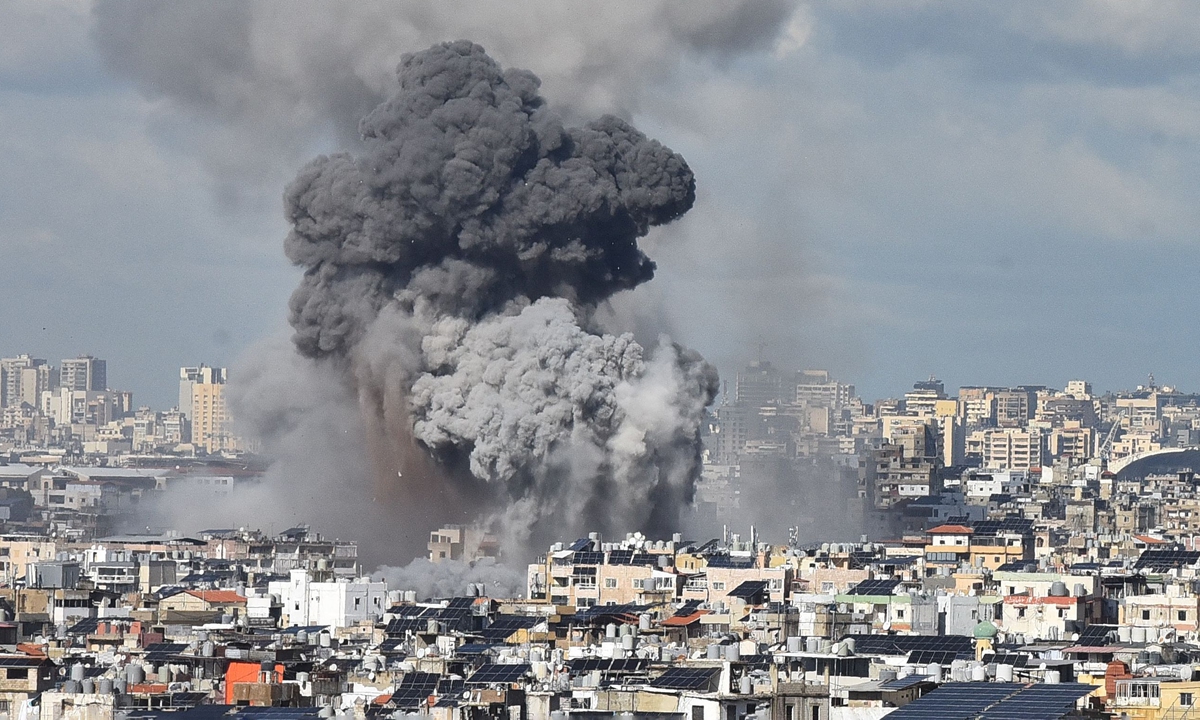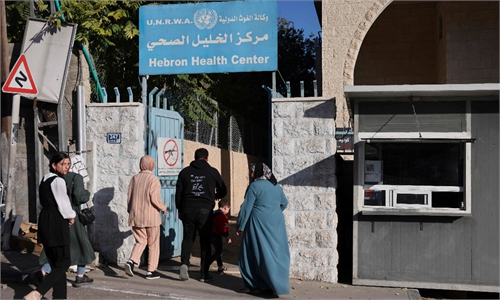Israel-Hezbollah cease-fire takes effect, with both uncertainties and positive signals: experts

Smoke billows above Beirut's southern suburbs following an Israeli airstrike on November 26, 2024. Israel's security cabinet was due to meet on November 26 to vote on a proposed ceasefire in its fight with Hezbollah in Lebanon. Photo: VCG
A cease-fire between Israel and Hezbollah came into effect on Wednesday, with experts saying that the temporary halt may face uncertainty during implementation but the cease-fire itself offers a positive signal for resolving the Israeli-Palestinian conflict, though broader peace needs further efforts.
The cease-fire that started early Wednesday calls for an initial two-month halt to fighting and requires Hezbollah to end its armed presence in southern Lebanon, while Israeli troops are to return to their side of the border. An international panel led by the US will monitor compliance, said the AP.
Israeli Prime Minister Benjamin Netanyahu said on Tuesday there were three reasons to pursue a cease-fire - to focus on Iran, replenish depleted arms supplies and give the army a rest, and finally to isolate Hamas, Reuters reported.
Hezbollah has not formally commented on the cease-fire but senior official Hassan Fadlallah told Lebanon's Al Jadeed TV that while it supported the extension of the Lebanese state's authority, the group would emerge from the war stronger.
On the day the cease-fire agreement took effect, clashes continued between the two sides, raising doubts about its effectiveness.
According to the Al-Manar correspondent in southern Lebanon, Israeli occupation forces fired five artillery shells toward Fatima Gate in the Lebanese border town of Kfar Kila, aiming to intimidate Lebanese citizens attempting to enter the village. Meanwhile, the Israeli military stated on Wednesday that Israeli forces fired at several vehicles carrying suspects to prevent them from entering a no-go zone in Lebanese territory, and the suspects subsequently withdrew, Reuters reported.
UN Resolution 1701 is at the heart of the Israel-Hezbollah cease-fire deal, according to the AP. Resolution 1701 was supposed to complete Israel's withdrawal from southern Lebanon and ensure Hezbollah would move north of the Litani River, keeping the area exclusively under the Lebanese military and UN peacekeepers.
Ding Long, Vice Dean of the School of Foreign Studies, University of International Business and Economics, pointed out that Israel retains the authority to determine whether the other party has violated the agreement, which could lead to disputes and potential military actions during its implementation.
A US official said the Lebanese army is expected to deploy 5,000 troops to the south under the agreement, the BBC reported. However, questions remain about their role in enforcing the cease-fire, and whether they would confront Hezbollah if needed, which would have the potential to exacerbate tensions in a country where sectarian divisions run deep.
Apart from the issues of military capability and oversight mechanisms, Ding said that the current agreement is temporary, with a 60-day duration, rather than a long-term or permanent reconciliation agreement, which may lead to challenges and uncertainties during its implementation.
The agreement marks the first glimmer of peace in the Middle East in a year and holds positive significance for regional stability. It may offer a positive signal for the future direction of the Israeli-Palestinian conflict, but broader peace solutions will require further efforts, Ding noted.

